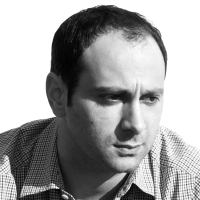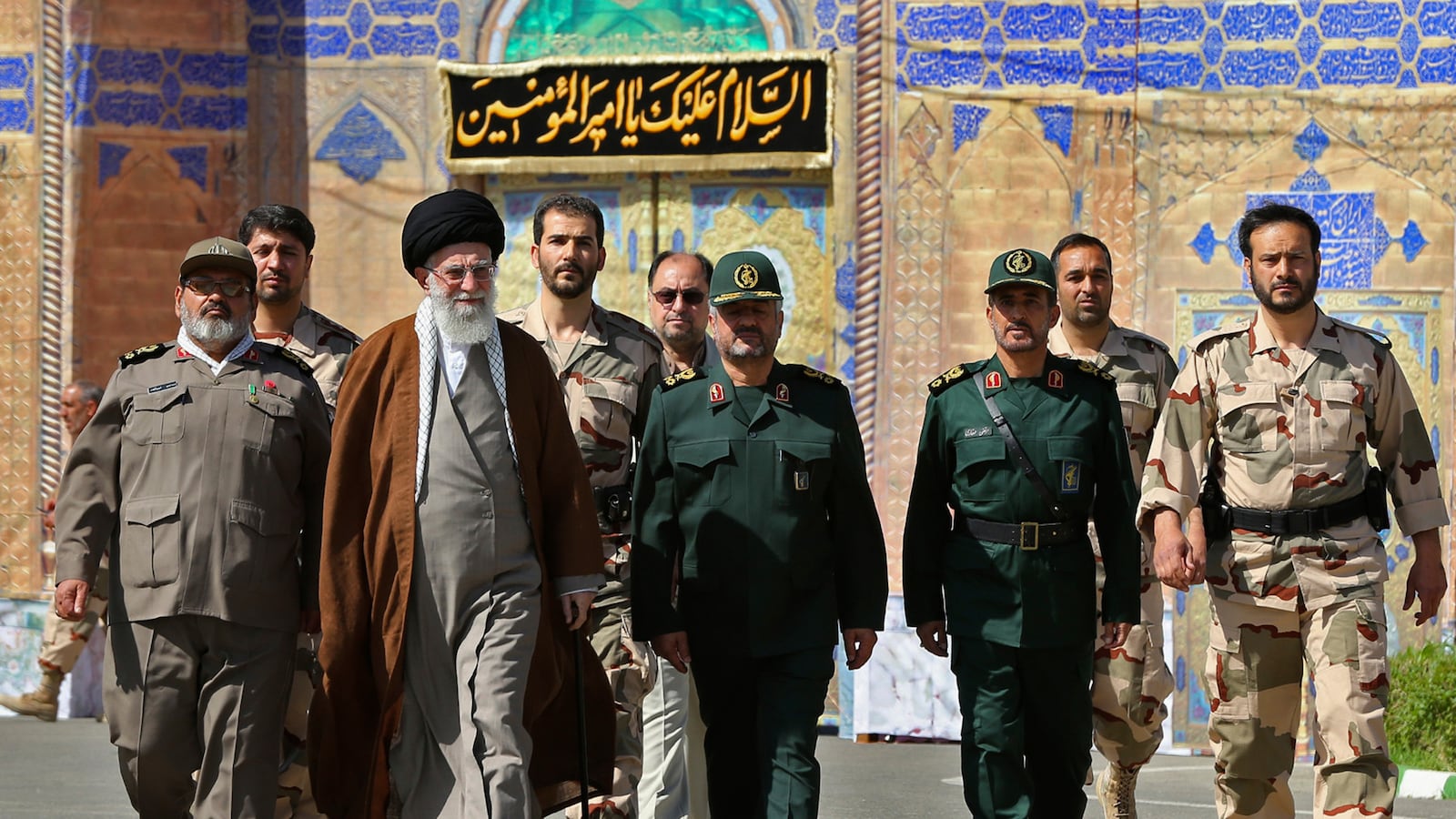Iranian hard-liners have been curiously muted about the nuclear deal with the United States and five other world powers. Throughout the negotiations they’ve been skeptical, hostile—far from silent, certainly. But it appears that some of the proponents of the deal may have laid a trap for them. Before the deal came down, former President Ali Akbar Hashemi Rafsanjani accused them of sounding like the never-give-an-inch prime minister of Israel. They “speak Netanyahu’s language,” said Rafsanjani.
The statemend obviously was calculated and also effective. Even Kayhan, one of Iran’s most conservative newspapers and a longtime critic of the nuclear negotiations, could only bring itself to observe feebly that there seemed to be “a 180-degree difference” between the Iranian and the P5+1 (the five permanent members of the Security Council plus Germany) versions of what had been agreed.
The bigger, more complicated story, though, is how the deal will go down with the organization that now plays a huge role in running Iran, albeit behind the country’s clerical façade: the Iranian Revolutionary Guard Corps (IRGC), also known as the Pasdaran, some of whose internationally infamous leaders showed up on the lists in the nuclear agreement annexes as people who will have sanctions against them lifted.
Whether this was an oversight, a sleight-of-hand, or an attempt to win Pasdaran support, it has to be understood that ever since Rafsanjani (ironically, of all people) let the IRGC into the Iranian economy, allowing it to invest in the country’s leading industries, the group has grown to become Iran’s most important financial power.
The IRGC is now the biggest player in Iran’s biggest industries: energy, construction, car manufacturing and telecommunications. A Western diplomat recently told Reuters that the IRGC’s annual turnover from all of its business activities is around $10 billion to $12 billion, which, if accurate, would be around a sixth of Iranian GDP.
But the idea that what’s good for business—the lifting of heavy sanctions against Iran—is good for the IRGC, could be misleading. What the deal certainly does is make life more complicated for the Pasdaran. Up until now, its combination of political, military and financial clout made the IRGC the country’s premier sanction busters, providing the organization and many of its individual members with lucrative incomes year after year.
With sanctions set to end, the sanction-busing income will drop accordingly. (As an analogy, think of the devastating blow to American bootleggers when the sanctions of Prohibition ended.) But the problems for the IRGC don’t stop there.
According to the Israeli-based Iran analyst and commentator Meir Javedanfar, “the removal of sanctions removes income from smuggling, but it also removes income derived from the huge monopolies on business [that the IRGC has in Iran] because Iran will be opened up to foreign investors.”
“On the other hand,” he continues, “their biggest client is the Iranian government and its people, both of which have had reduced purchasing power because of the sanctions. In the end I think the benefits of sanctions relief outweigh the costs—economically they support it.”
In tandem with the IRGC’s economic power comes its political program, which is resolutely expansionist. After a relatively quiescent period following the 1980-1988 Iran-Iraq War, spreading the power and influence of Iran through the region has grown to become the central tenet of the country’s foreign policy. The IRGC, through its Quds Force branch, virtually created Hezbollah in Lebanon in the 1980s, and is now fighting wars in Syria, Yemen, and Iraq in all but name.
Increased income gives the group more ability to continue to its foreign policy goals. More money means more guns to Hezbollah; more barrel bombs to Syrian President Bashar al-Assad. Sanctions relief will give the Iran foreign policy project a much-needed boost.
There are however, serious potential pitfalls that come with the deal. As Javedanfar points out: “The IRGC will want to ensure that a firewall is created: that any increase in dealing with the West doesn’t lead to its interference in Iranian politics with western Human Rights representatives (long seen in Iran as a Trojan Horse in the Western tool kit of anti-Iran weaponry) coming to the country to promote democracy and human rights. It basically doesn’t want to see a major improvement in relations with the West.”
But that’s just the problem: the prospect of an improved business environment means the prospect of warmer relations with the West—which the IRGC fears above all else. And this points to a deeper truth: The IRGC fears a soft war against Iran far more than a hard war.
Since the American disaster in Iraq and the U.S. failure to respond to Assad’s use of chemical weapons, Iran no longer fears the prospect of U.S. military intervention. What it fears instead, as Javedanfar points out, is a so-called “velvet revolution” by Iranians, a civil uprising along the lines of Ukraine’s 2004 Orange Revolution or, indeed, the failed Green Revolution in Iran in 2009.
This has been the problem since Obama first extended his hand to the Iranian leadership in 2008. Hard-liners fear relations with the West—and especially the U.S.—because the ideology of the Islamic Revolution, on which the state is built, is centered on opposition to the Great Satan.
The last vestiges of the revolution that remain among the wider population are based around anti-Americanism. If true détente now comes, that propaganda tool will be lost. Even more disconcerting, many more Iranians—who in great numbers already loathe and question the regime—might start to wonder what the point of the Islamic Republic actually is.
This is the real danger for the IRGC and the whole power elite of the Islamic Republic. And this, not an issue of centrifuges or enrichment, is what Supreme Leader Ali Khamenei, and Quds Force head Qasem Suleimani himself, will be pondering in the days and weeks that follow the nuclear deal.






